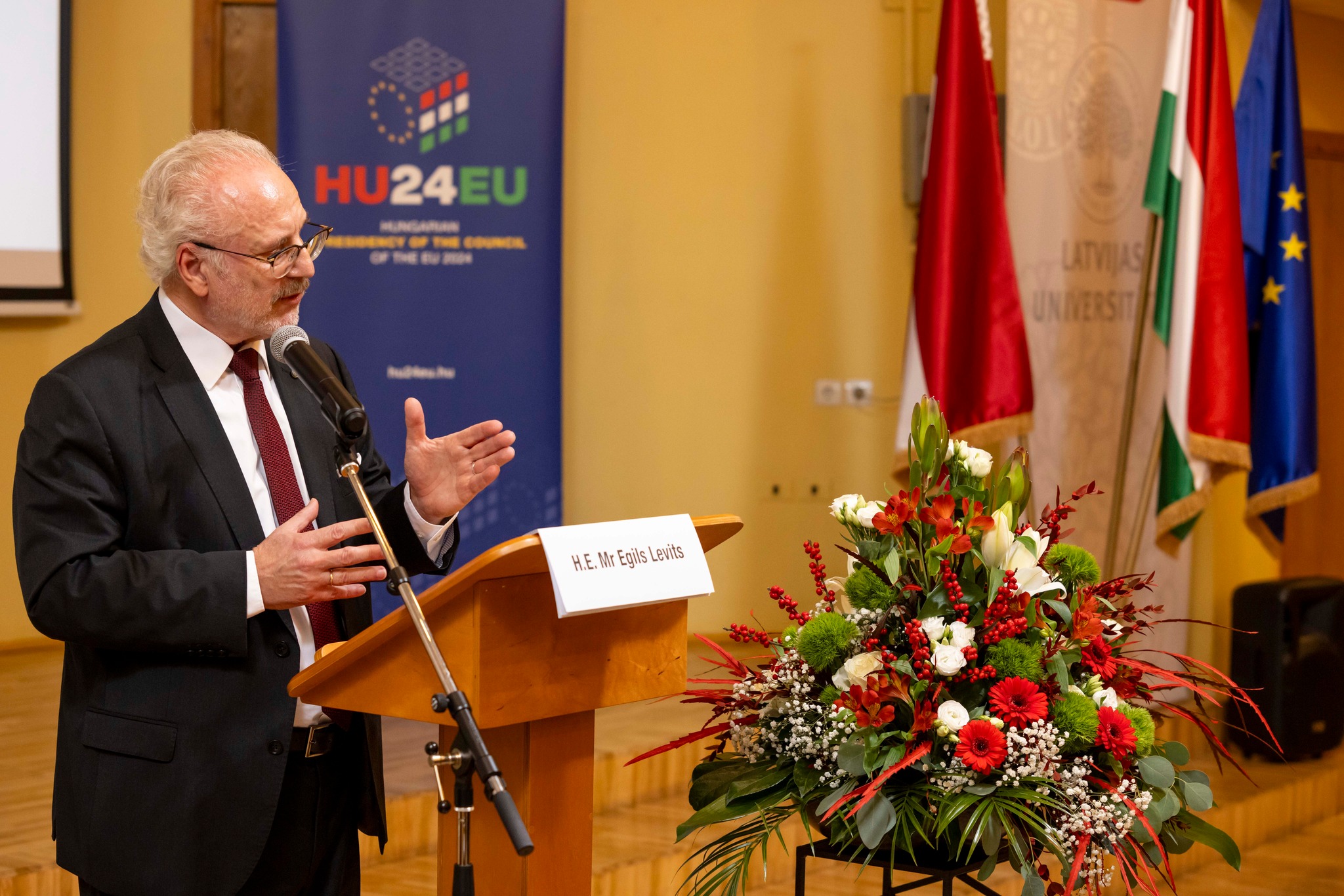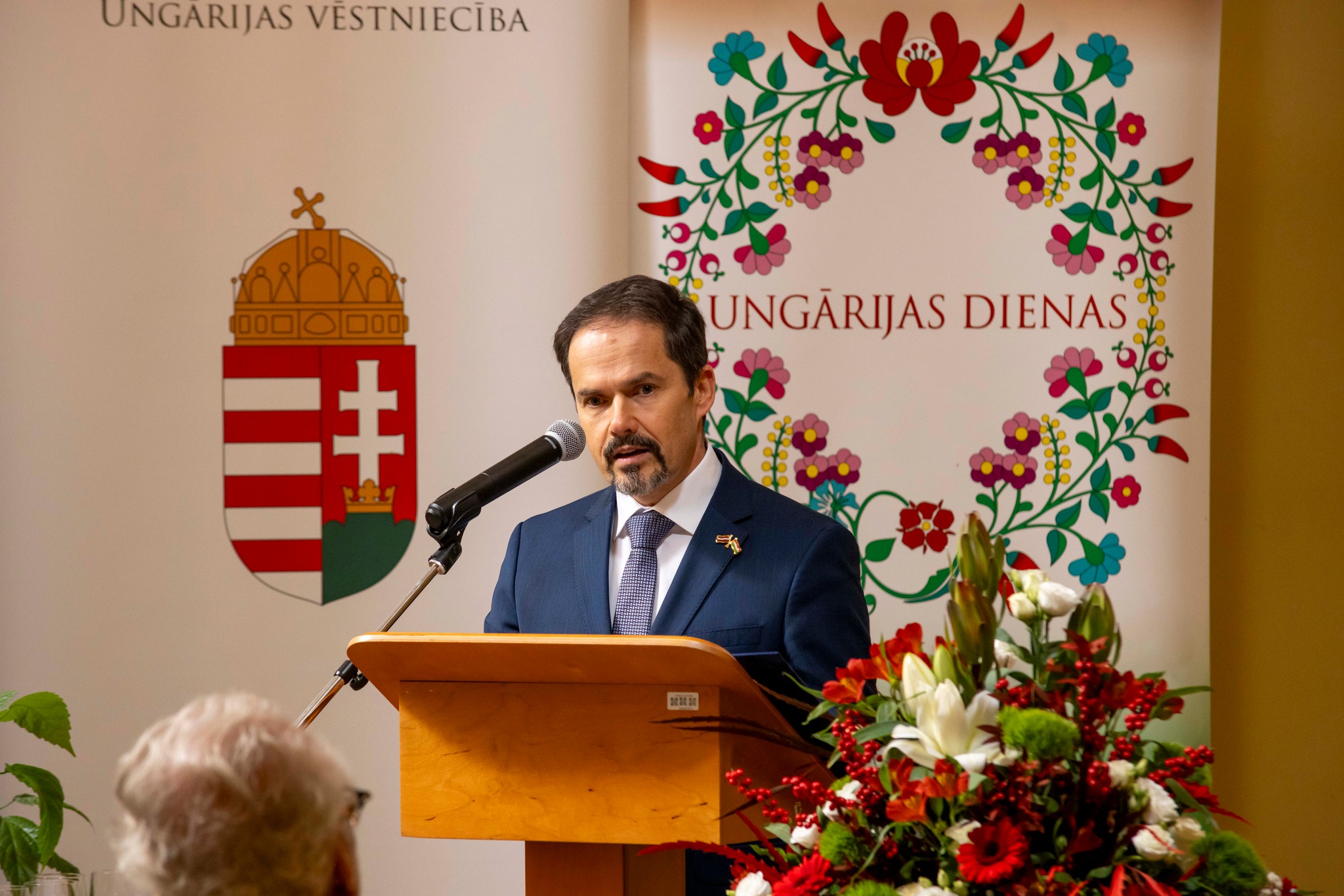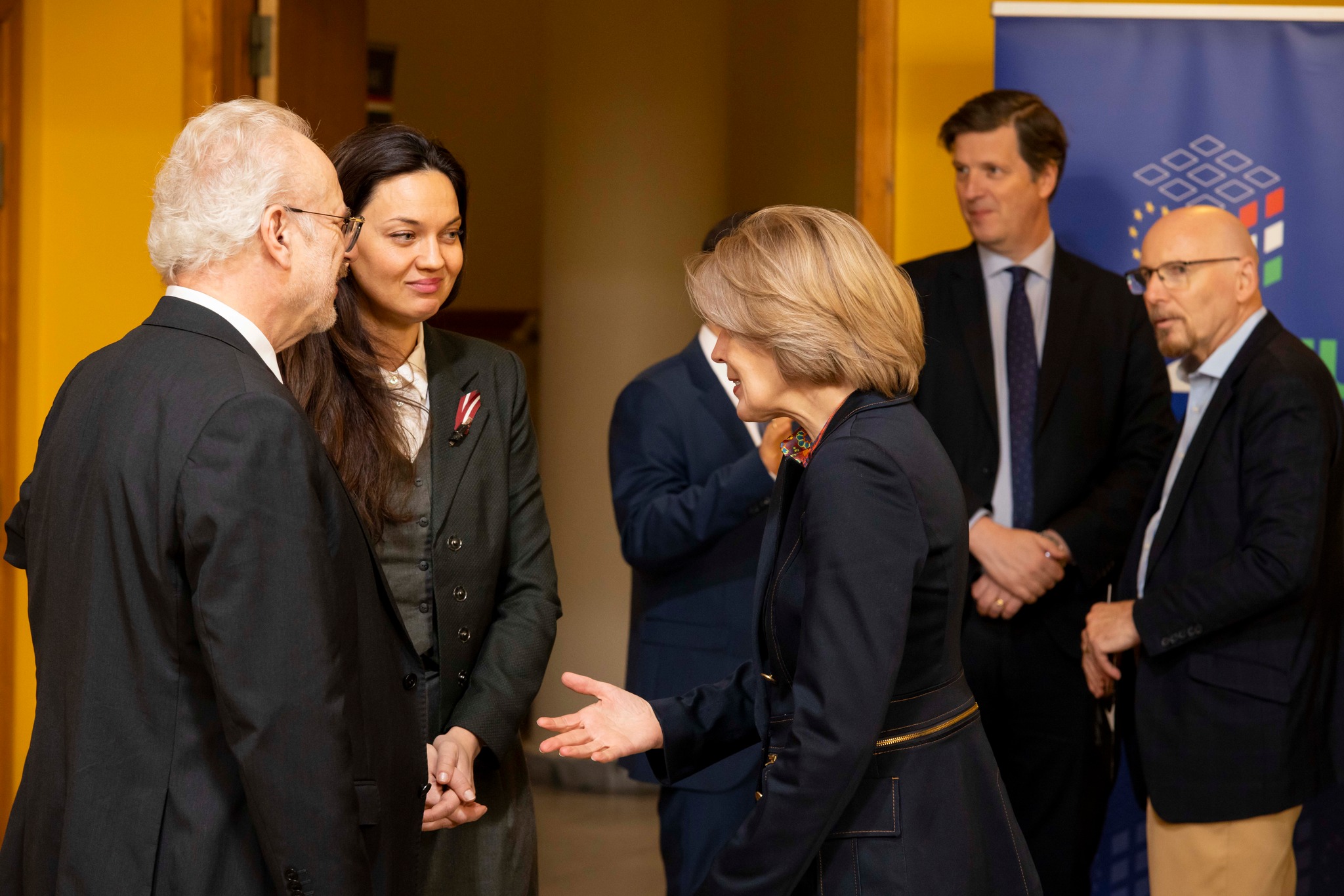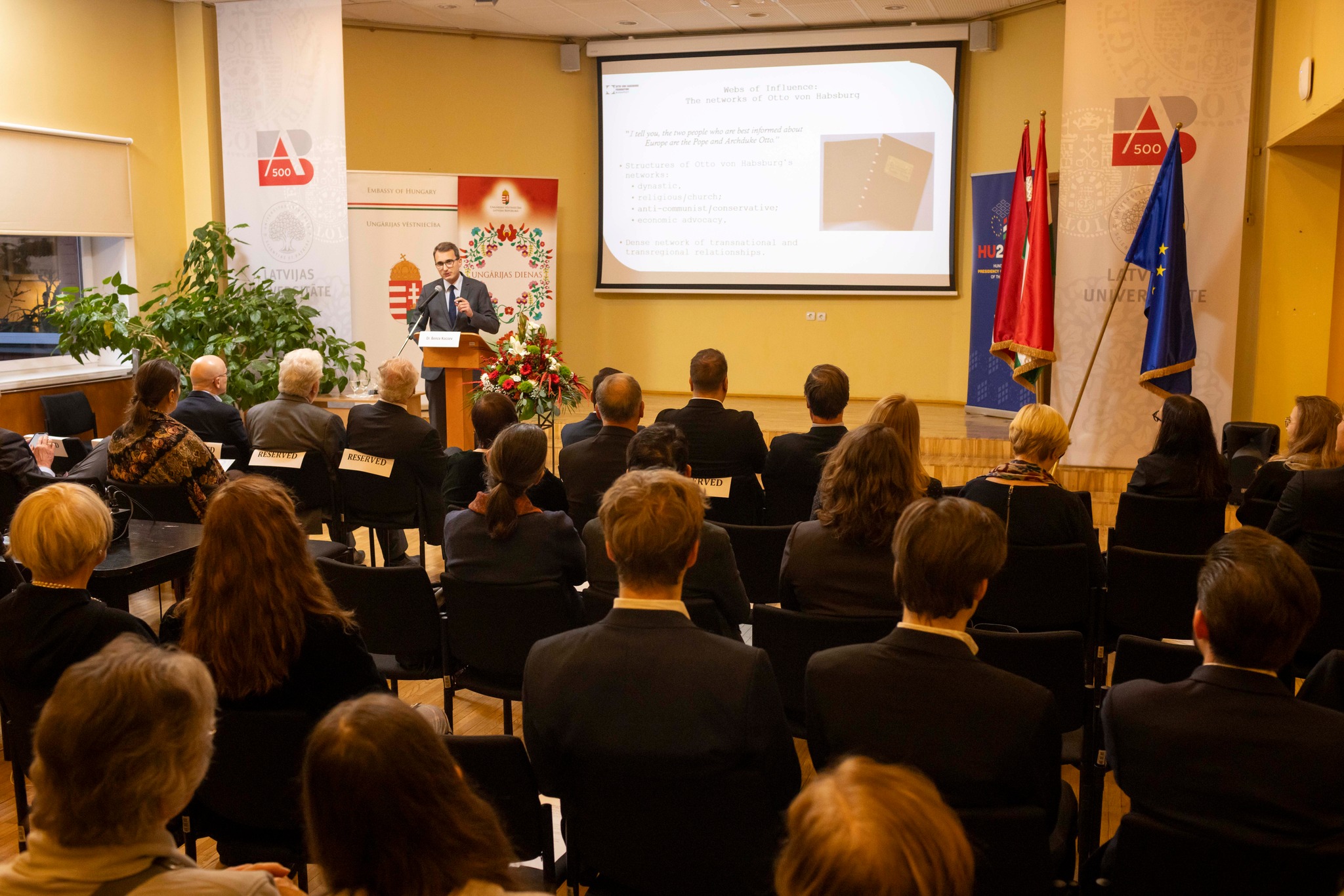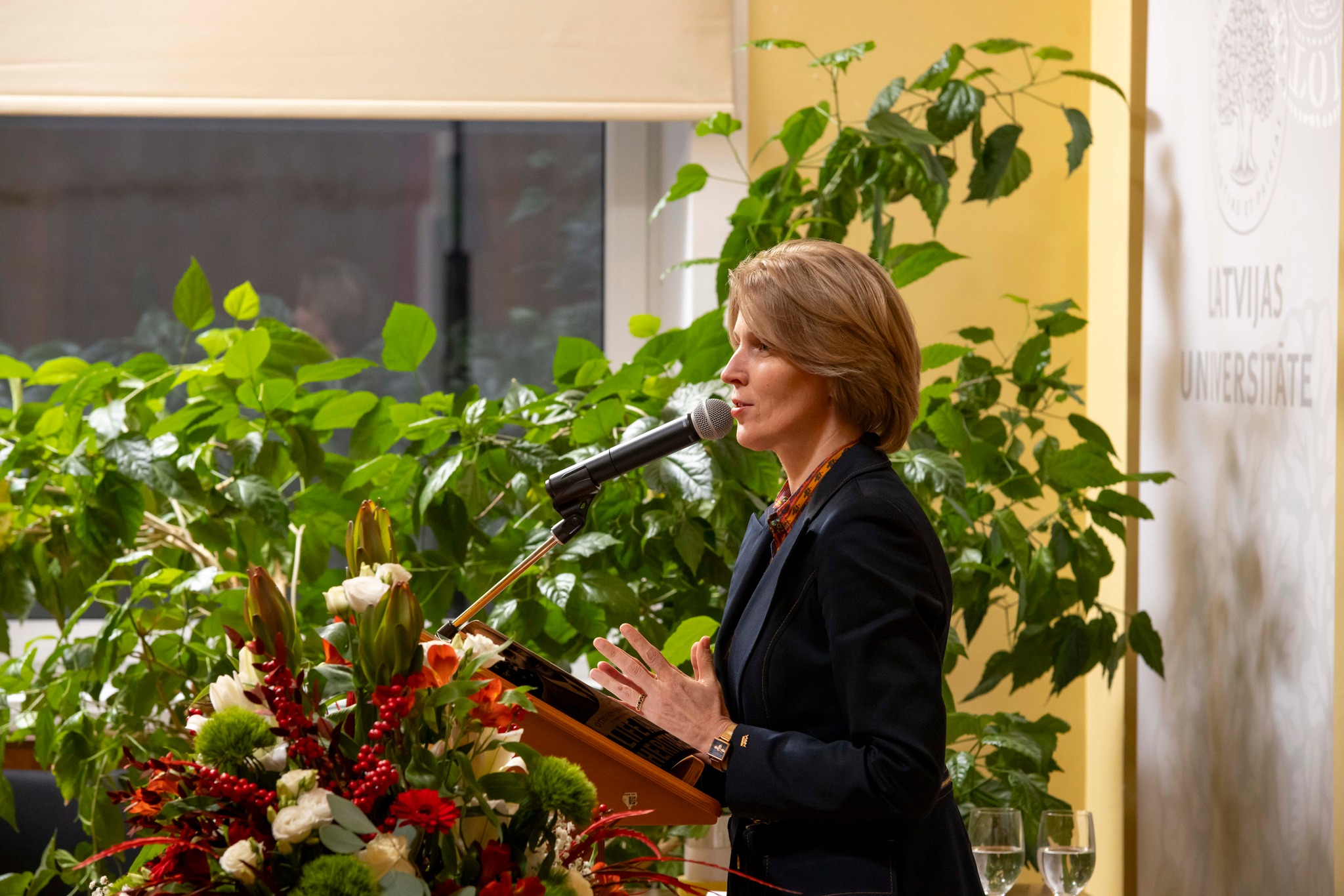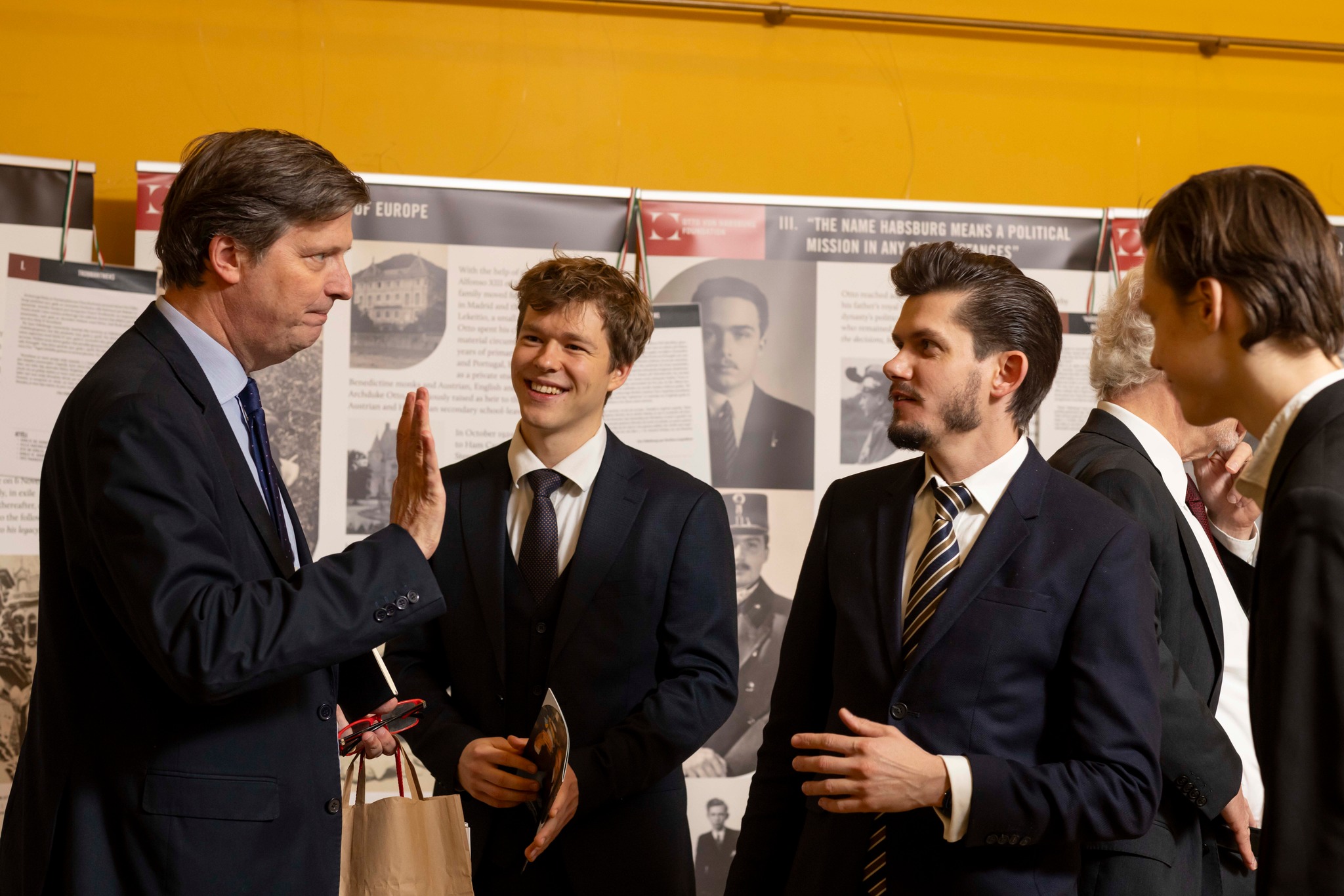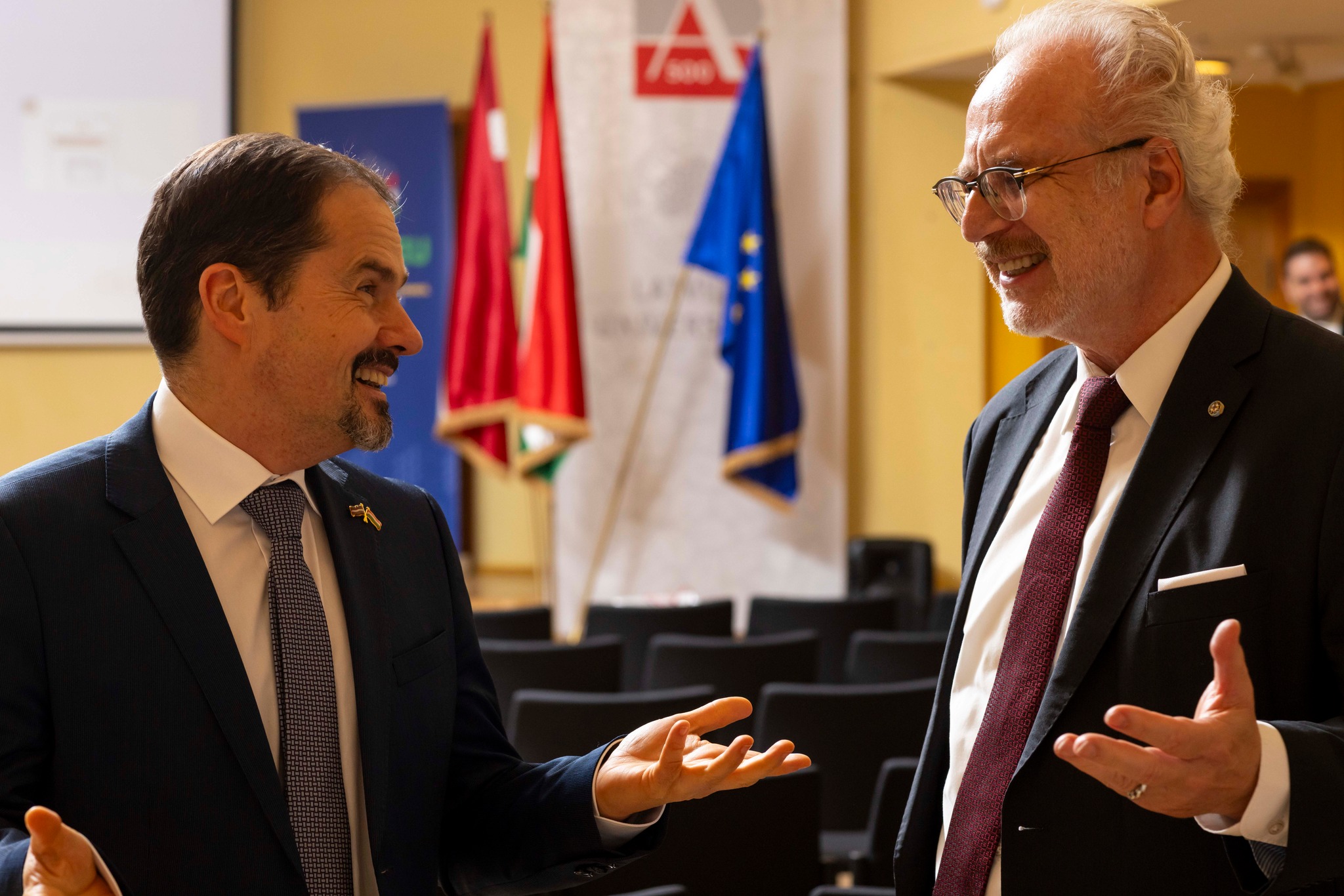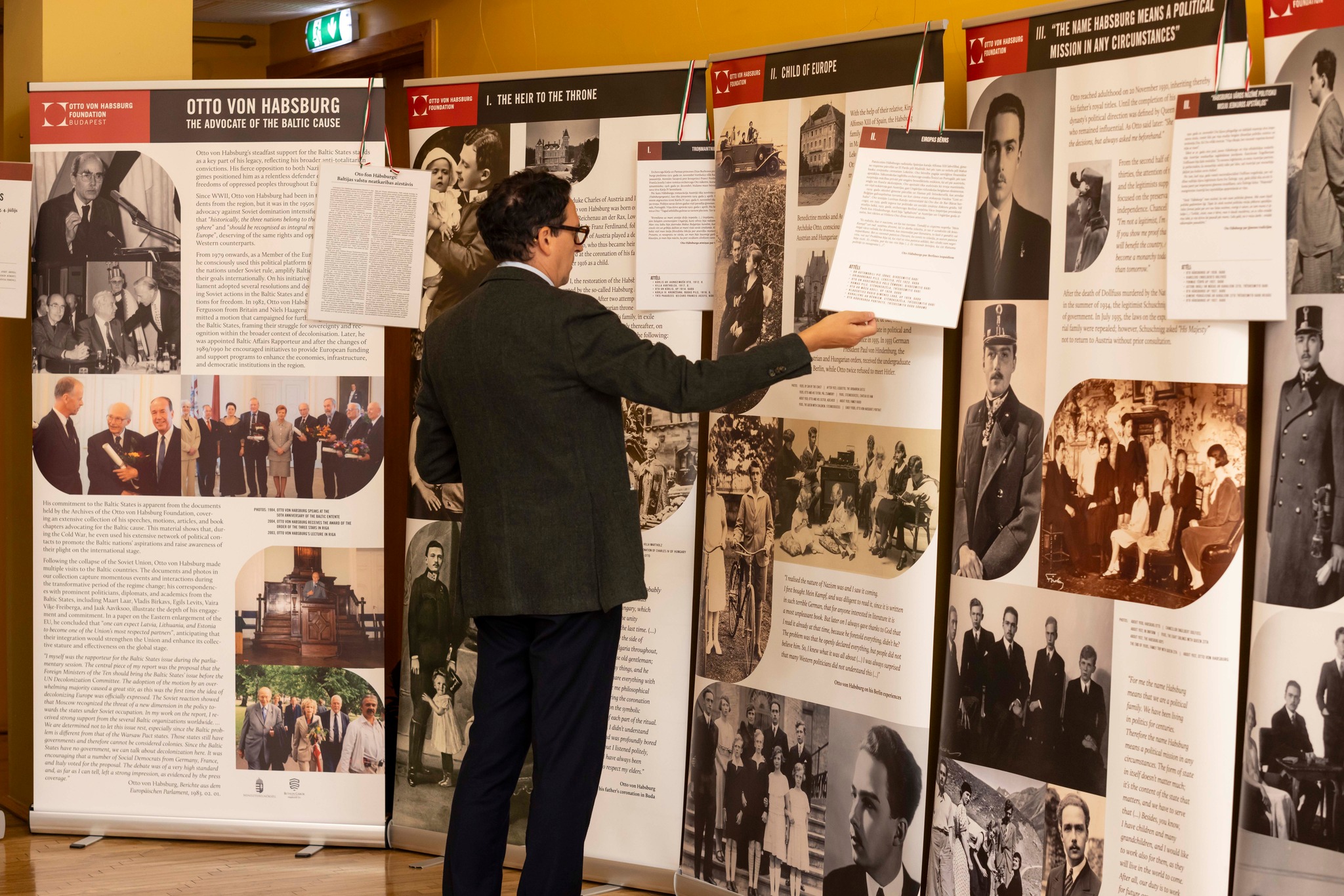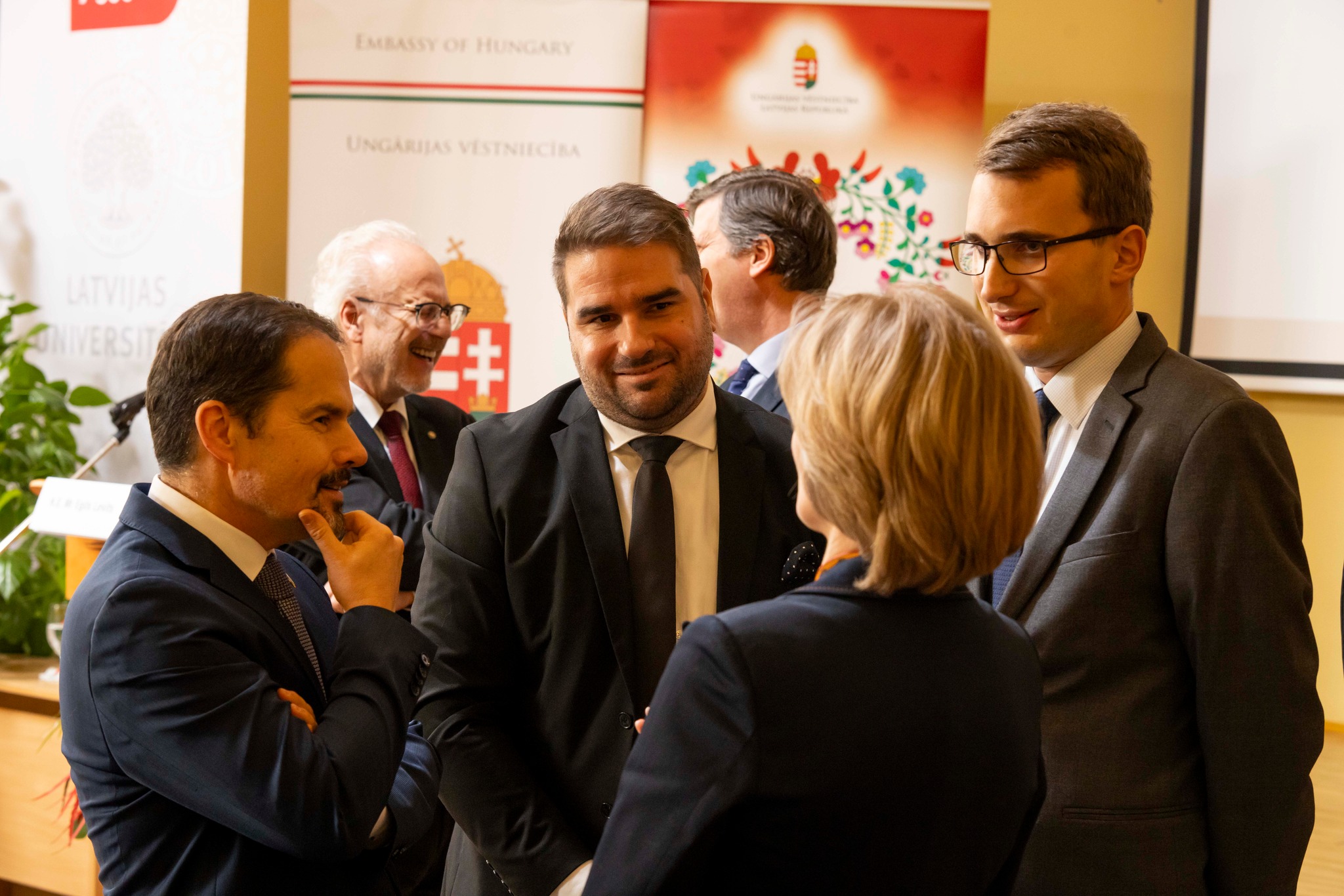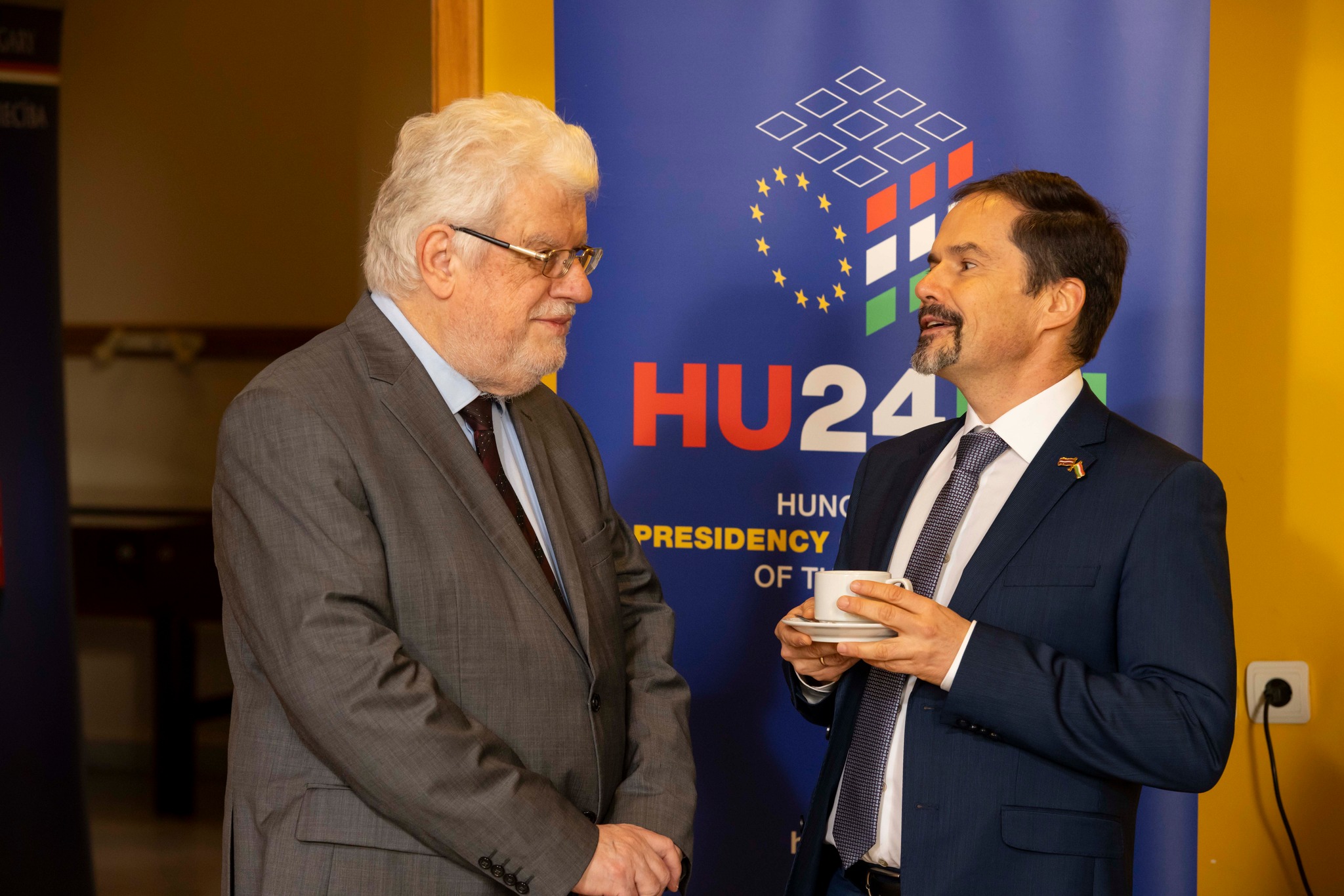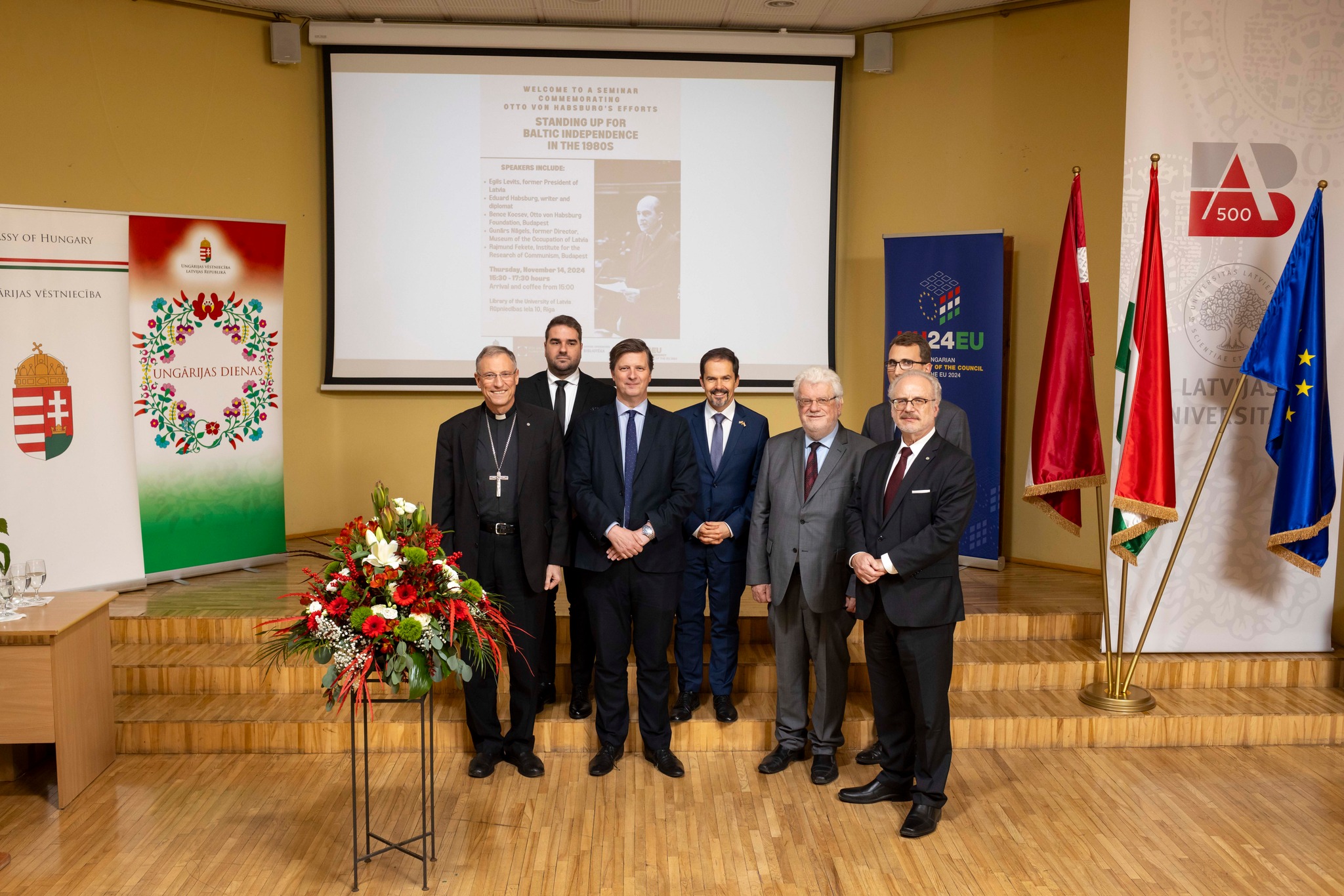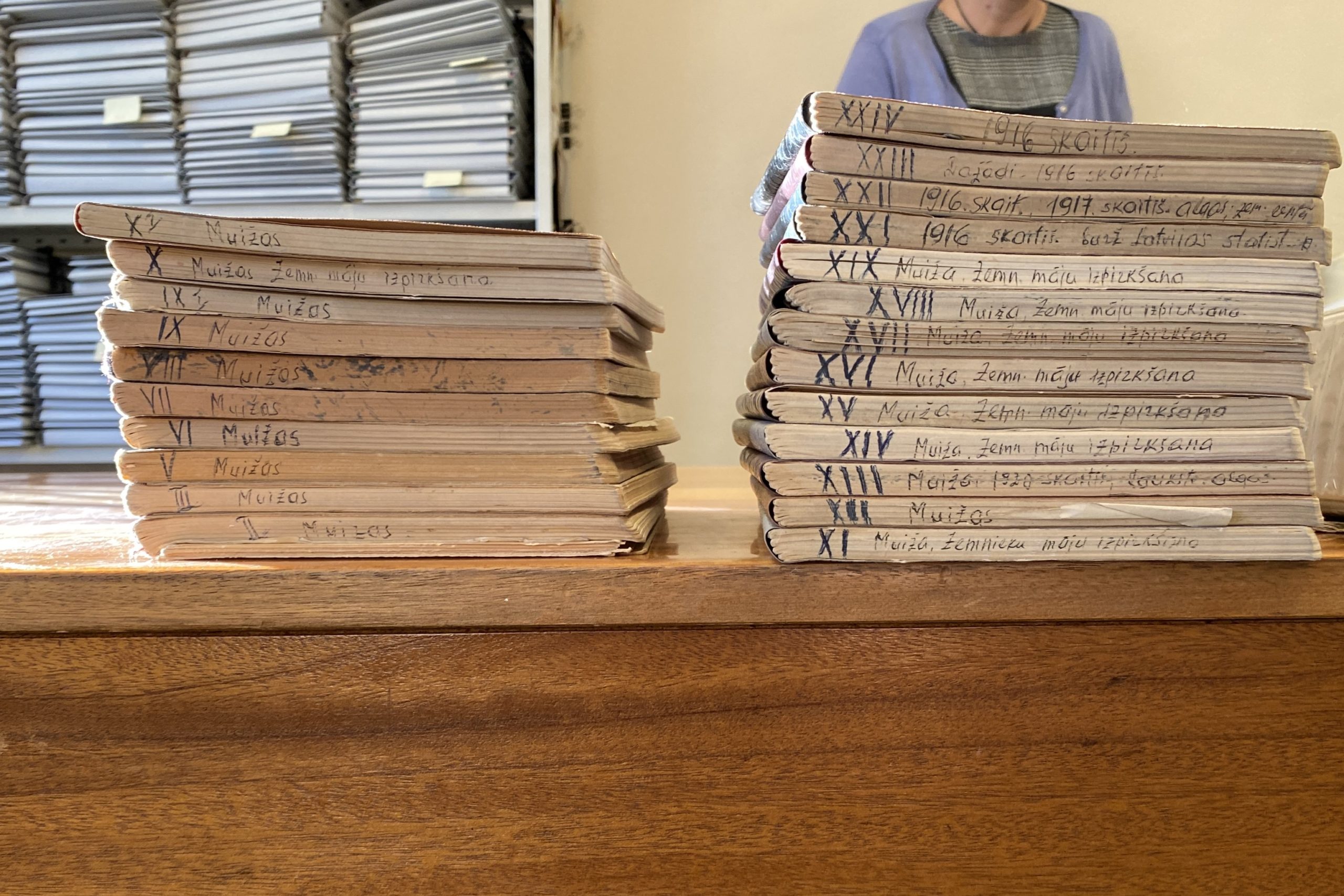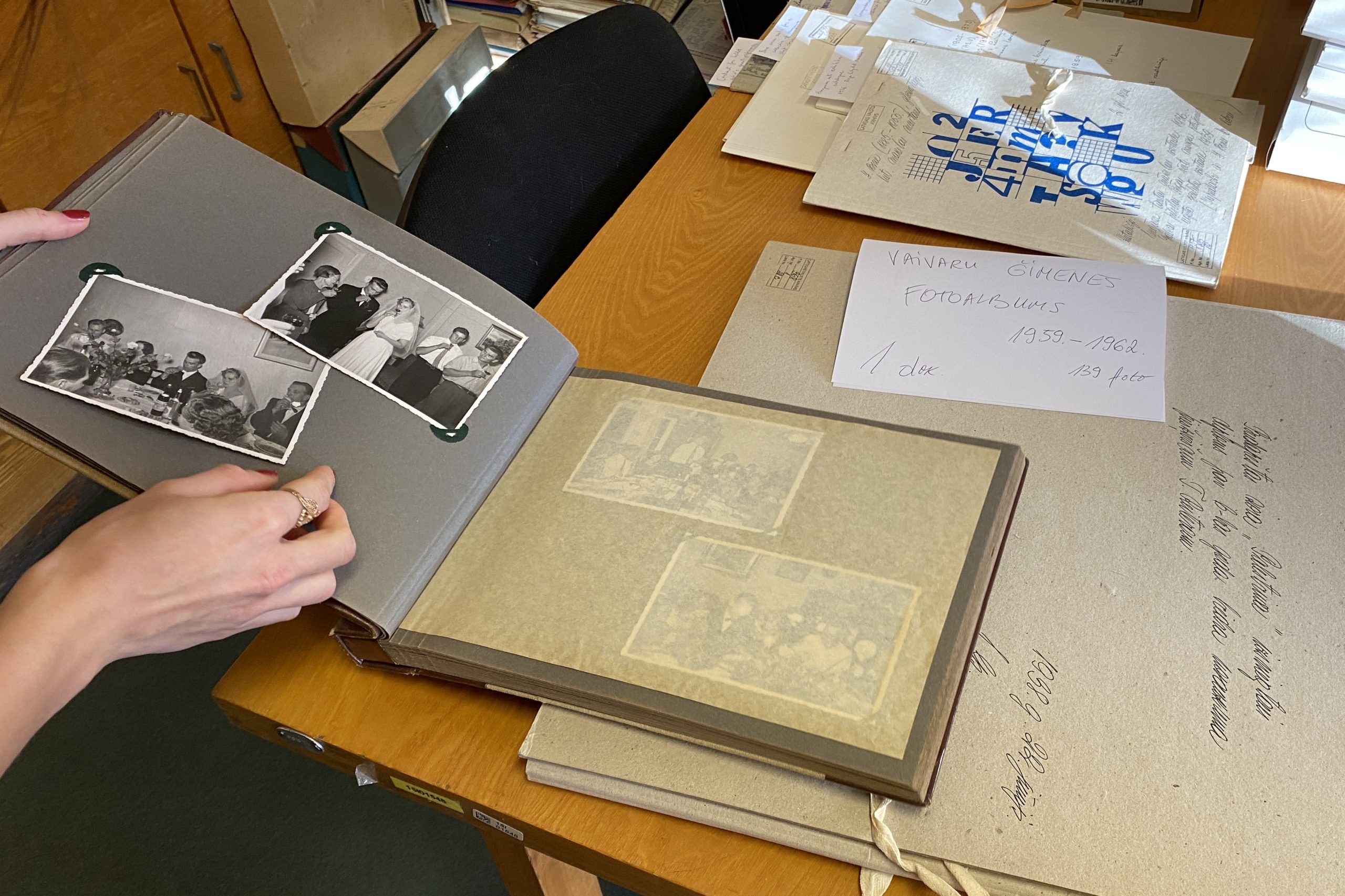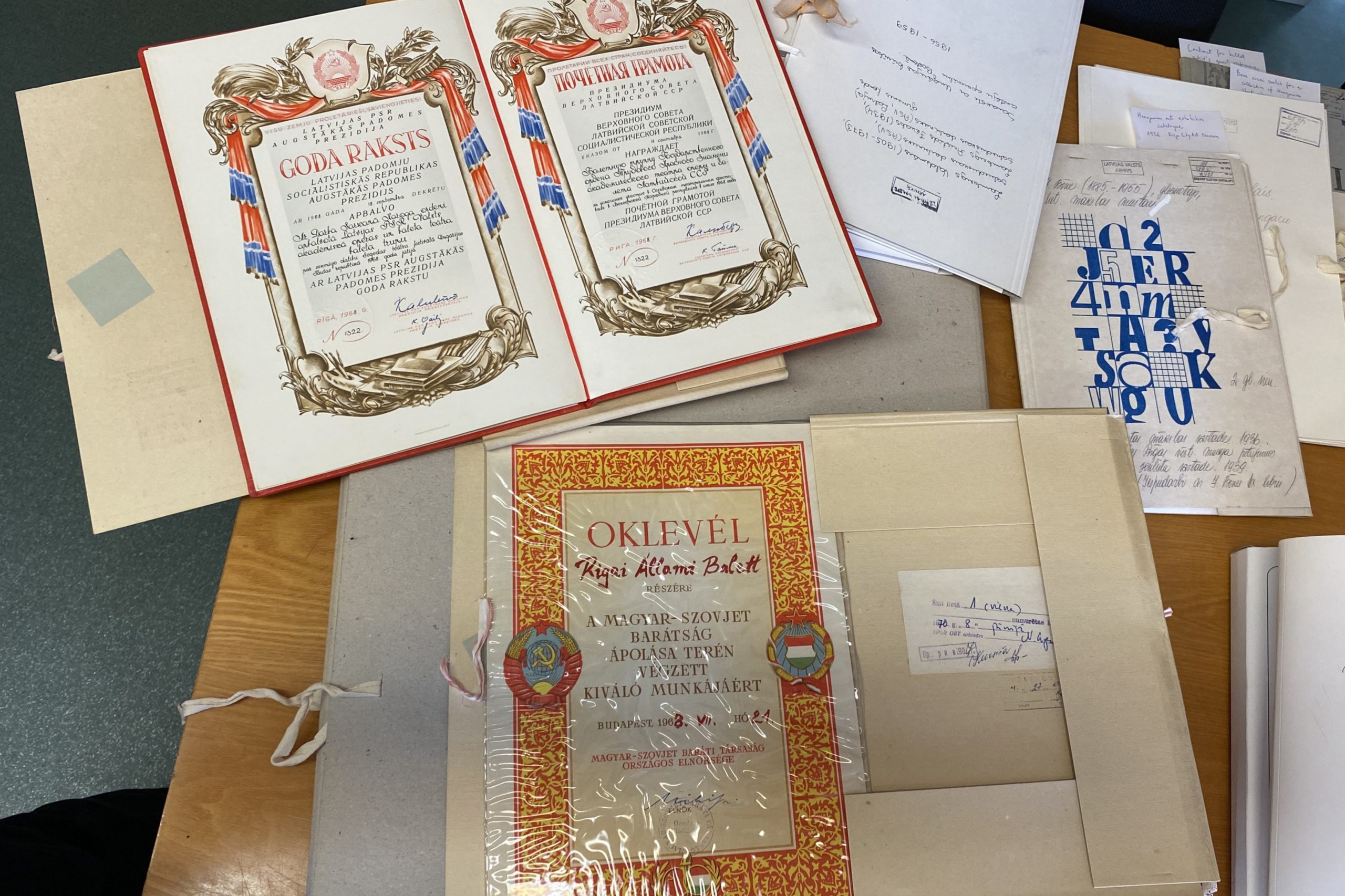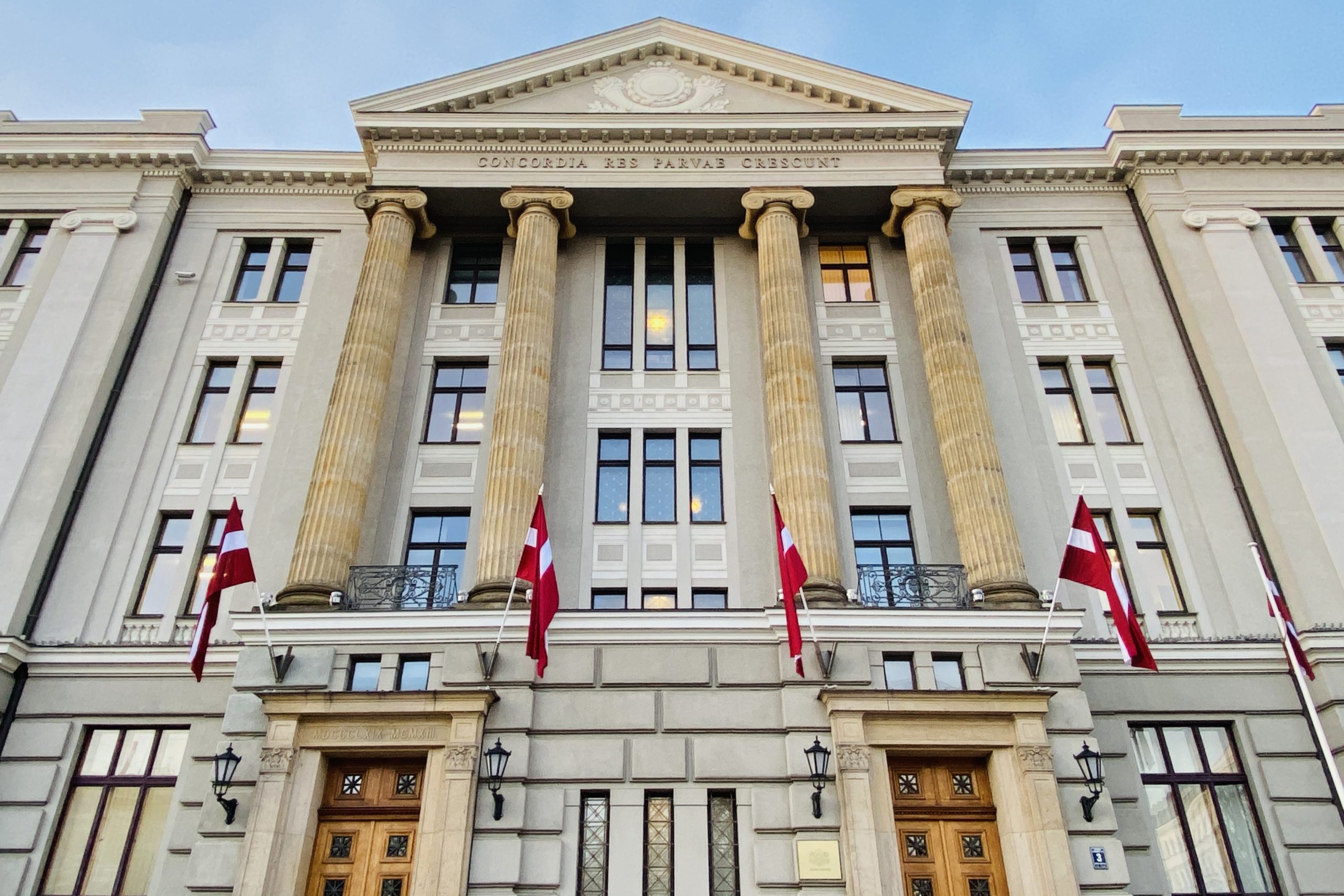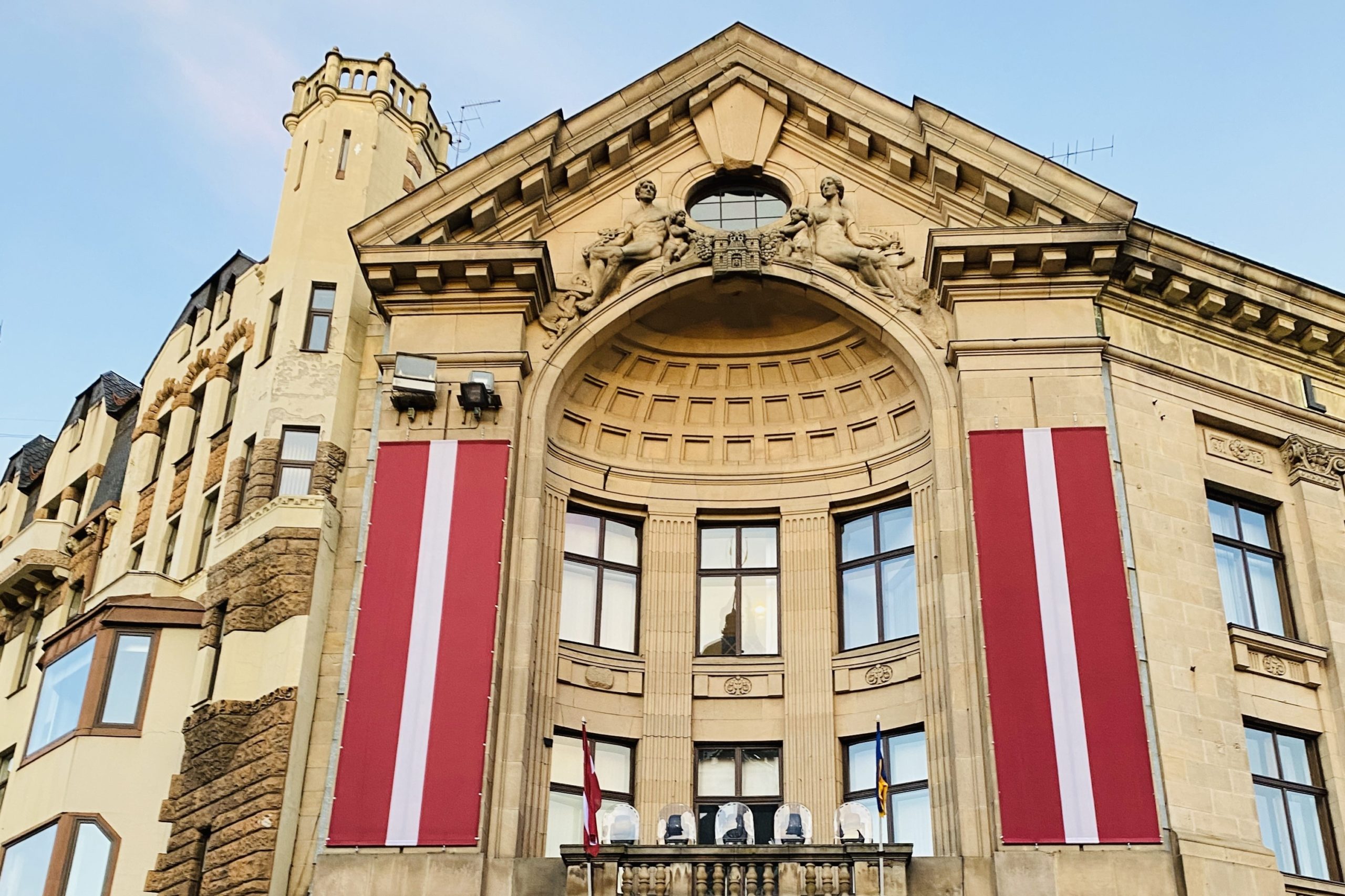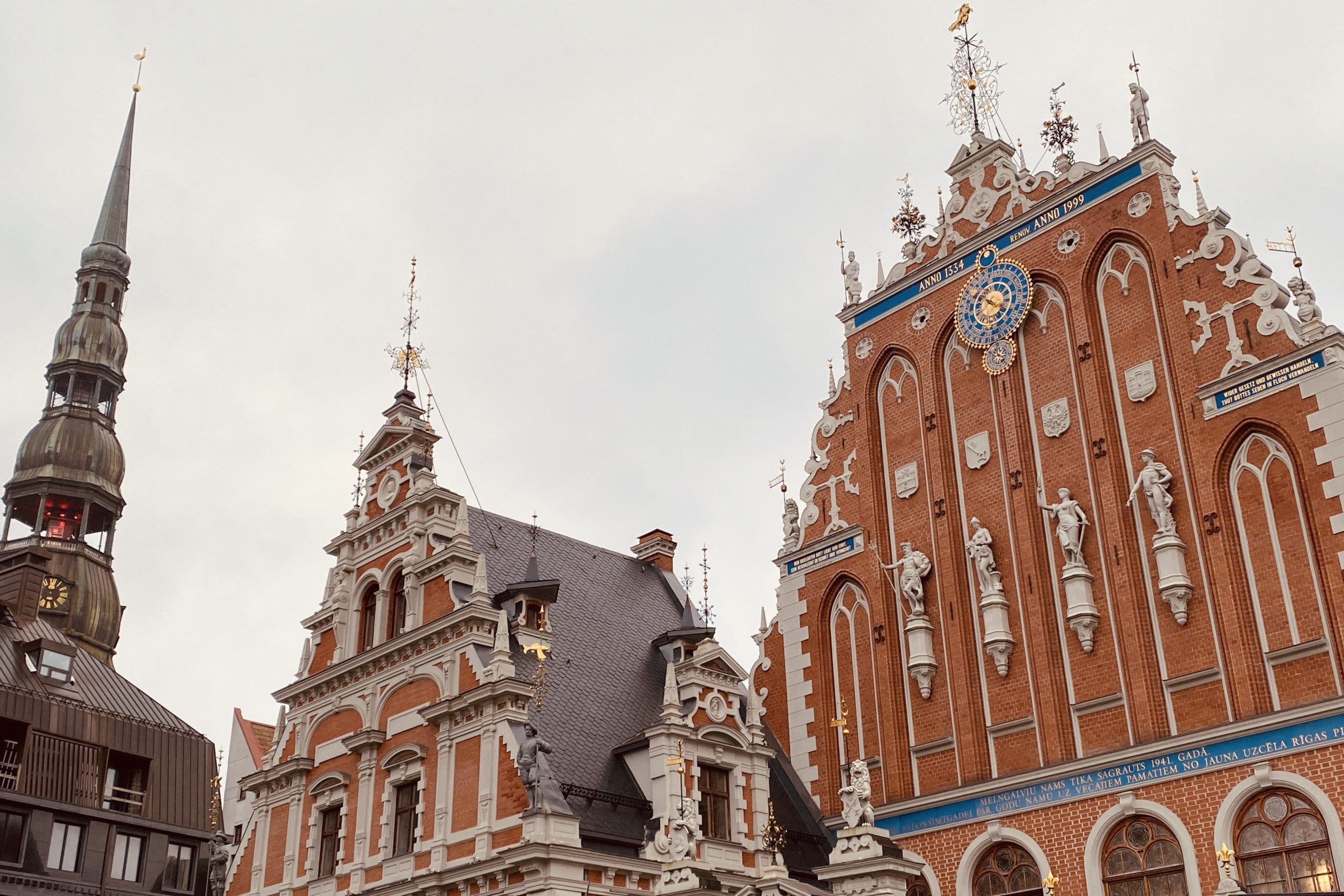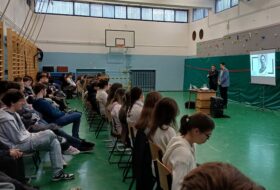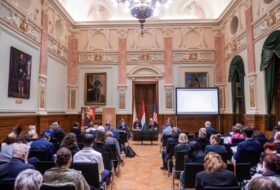“Paneuropa ist ganz Europa ” goes the legendary dictum of Otto von Habsburg, which, even in the face of the realities and geopolitical context of the Cold War, made it clear that the integration of the continent is far from complete without the accession of the Central and Eastern European countries. Throughout his long public career, the former heir to the throne therefore paid particular attention to the countries behind the Iron Curtain, including the Baltic states, which were part of the Soviet sphere of interest and statehood, and became one of the most committed supporters of their sovereignty and later their integration into the European community. This political legacy was honoured by a conference organised in cooperation with the Embassy in Riga, where we presented an exhibition on the life and work of our namesake in the Latvian capital.
The event was preceded by a memorial Mass celebrated by Archbishop of Riga Zbigņevs Stankevičs, in the St. Jacob’s Catholic Cathedral, which had changed owners several times over the centuries. The reading of the Gospel passage on the coming of the Kingdom of God (Luke 17, 20-25) was particularly fitting for the occasion, as it resonated strongly with Otto von Habsburg’s life’s work. For the politician was deeply convinced and believed that the ‘heavenly Jerusalem’ was not only a distant hope for the Christian man, but also an everyday reality, and he regarded his persistent work for this goal as a profoundly felt vocation and, as such, as a public and political duty.
In his opening speech, Uldis Zariņš, Director of the University Library, thanked the Embassy for organising the event and stressed the special significance of the conference in a week when Latvians were celebrating the country’s Independence Day. He pointed out that Latvia, with its accession to the European Union, had become part of a strong alliance, in the realisation of which Otto von Habsburg had played a prominent role.
In his introductory speech, György Urkuti, Hungary’s Ambassador to Latvia, referring back to the memorial Mass before the conference, drew attention to the diligence with which Otto von Habsburg had applied his knowledge and talents to the building of the Kingdom of God on earth. He stressed that one of the objectives of the Hungarian EU Presidency was to present personalities who had played a decisive role in the creation of European unity and common freedom. Otto von Habsburg was one of the most formative politicians in this respect, whose activities had a decisive influence on the recent history of Central and Eastern Europe, including the Baltic region, and on the development of European integration.
Iveta Reinholde, Vice-Dean of the University of Latvia, stressed that independence is not a static state, but requires continuous action – it must be protected and maintained. Otto von Habsburg was committed to this approach, committed to the restoration of sovereignty to the Baltic states, where the struggle for freedom had often seemed particularly hopeless.
One of the direct witnesses of Otto von Habsburg’s efforts for the Baltic cause was Egils Levits, former President of the Republic of Latvia. The politician described our namesake as an extraordinary person and an exceptional politician, whom he had met as a young lawyer living in exile in Germany. And shortly after their first encounter, Levits played a key role in the preparation and drafting of one of the first parliamentary proposals on the Baltic states by Otto von Habsburg, who at the time had already worked as an MEP. The proposal adopted by the Assembly was not only of symbolic importance, but also contributed to the creation not of new state formations in the region at the end of Soviet rule, but of successor states to the independent countries of the interwar period, with the same territorial continuity. The speaker praised the political genius of Otto von Habsburg, who, as a representative of the Bavarian Christian Social Union, had addressed the Baltic question within the narrative of colonialism, thus successfully appealing to part of the left-wing political groups as well. His cooperation with the German Social Democrat Hans-Joachim Seeler was an exemplary demonstration of collaboration across political divides. “Otto von Habsburg was a pro-European conservative and one could say that he was a symbol of European unity”, concluded the former President of the Republic.
Bence Kocsev, a research fellow of our Foundation, drew attention to the particular topicality of the subject at the beginning of his presentation, reminding that this year marks the 45th anniversary of the first direct elections to the European Parliament and the election of Otto von Habsburg as an MEP. He stressed that the former heir to the throne had foreseen in a visionary way that the communist regime in Central and Eastern Europe, while seemingly unassailable, was unsustainable in the long term, and had worked with this conviction to free these countries from the Soviet shackles as soon as possible. Although Otto von Habsburg’s most significant achievements on the Baltic question were made as a Member of the European Parliament, he had been concerned with the fate of the region long before that. The conservative and Christian Democratic networks he formed had already been in contact with Baltic dissident organisations in the Federal Republic of Germany, the United Kingdom and the United States since the 1960s, and he himself had already met some of the emigre politicians during the Second World War. During his mandate in the European Parliament from 1979 to 1999, Otto von Habsburg made considerable achievements not only through the gesture of the “empty seat”, but also as a parliamentary rapporteur, in raising the issue of the Baltic states from being the concern of a few dissident groups to becoming part of the European and international political discourse.
Speaking about the former heir to the throne, the ideas he represented and his thoughts on Europe, Eduard Habsburg-Lothringen, Ambassador of Hungary to the Holy See, highlighted how the family history, closely intertwined with the history of the continent, shaped Otto von Habsburg’s vision of Europe. He recalled how, as a young man, belonging to the Hungarian branch of the family, but living in Germany as a result of the Cold War divisions, he was deeply influenced by the optimism and vision of our namesake. In the development of his political thought, Otto von Habsburg emerged for him as a true giant, whose horizons and far-sighted thinking went far beyond the possibilities and limitations of his time. At the end of his lecture, the Archduke recalled the Pan-European Picnic in the summer of 1989, which he himself had attended and in the preparation of which Otto von Habsburg had played a key role. This event was not only symbolically significant as the Cold War drew to a close, but also marked a concrete step towards the fall of the Iron Curtain, helping to reunite the western and eastern halves of Europe.
Gunārs Nāgels, the former Director of the Museum of the Occupation of Latvia, presented the perception of Otto von Habsburg in his homeland through the Latvian press. The first news reports about the child heir to the throne appeared very early on, and then became more frequent during the period of the rise of National Socialism and the turbulence in Austrian domestic politics. During the Cold War period, the former heir to the throne attracted even greater interest in the Latvian media. The lecturer also drew attention to the difference between the perceptions of Otto von Habsburg in the Soviet press and in the emigrant Latvian press: while the Soviet press, using the slogans of Willy Brandt’s smear campaign, vehemently opposed his candidacy for the European Parliament and later portrayed his efforts to gain independence for the Baltic countries as wishful thinking, the émigré press welcomed his work, stressing that Otto von Habsburg had always opposed the legitimacy of the Soviet Baltic States.
Rajmund Fekete, Director of the Institute for the Research of Communism analysed the implementation and spread of communist ideology in everyday life. He showed how the totalitarian system invaded the most intimate parts of people’s lives and transformed the social, economic and cultural fabric of the countries concerned. He stressed that, although Western countries had not had to experience the daily reality of communist ideologies, an understanding of this historical experience in Central and Eastern Europe was essential for European nations to understand each other’s past and present. In this respect, Otto von Habsburg’s work is particularly exemplary, as he was one of the few people on the western side of the Iron Curtain who saw through the daily reality of communism and worked tirelessly to make the oppression suffered under communist regimes an important part of the common European historical memory.
The few days stay of colleagues of our Foundation, Laura Balázs and Bence Kocsev in Riga provided an excellent opportunity to cultivate contacts with collections, such as visiting the Latvian State Archives, where they had the opportunity to get acquainted not only with the history of the institution, but also with some Hungarian-related materials. A particularly noteworthy part of the archives’ collection is the material of Latvian emigrants who left for the West during the Second World War and the Soviet period, which is currently being processed and digitised. These may even include the papers of individuals who corresponded with our namesake for a shorter or longer period of time, making exploration of this an exciting professional task for the future. This visit was made possible thanks to Māra Sprūdža, Director of the Latvian State Archives, whom we had met during her visit to Budapest in October on the occasion of the meeting of the leaders of European Archives.
